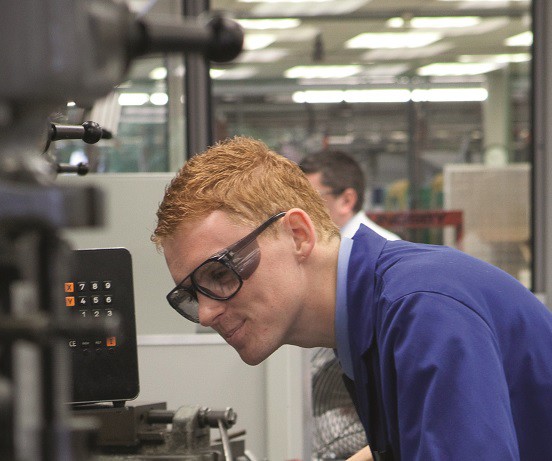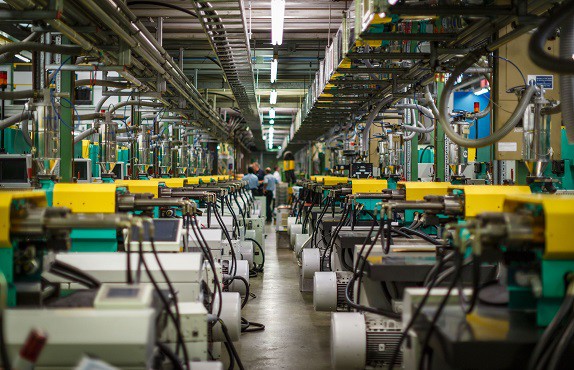It’s Time To Solve The Skills Shortage In The Plumbing Industry

There has been concern about the skills shortage for years. What needs to be addressed to accommodate the industry’s growth and the significant changes expected in the next decade?
It’s no secret that big changes are coming to the plumbing and heating industry. With the vast advancements in technology in the past decade and new environmental targets that must be met in the coming years, the future of the heating and plumbing industry has shifted along with the expectation of the modern installer.
Plumbers will have to adopt the installation of innovative solutions, such as heat pumps, which are increasingly regarded as the new standard for heating systems within homes, whilst also being able to integrate new technologies into a house’s smart ecosystem. This will require additional training for those already within the industry and will influence the way new apprentices are taught.
On top of this, the government has set out targets of 300,000 new homes a year by 2025 and 600,000 heat pumps installed in existing homes by 2028. While radical targets are needed to reach net-zero by 2050, there is already a notable skill shortage within the industry, meaning significant recruitment and change is needed within the heating and plumbing industry to begin preparing for the inevitable demand expected in the next decade.
Understanding the skill shortage
There have been several contributing factors to the current skill shortage within the industry, with the first, and probably most prominent factor being the lack of uptake from the younger generation at becoming trained in trade skills. Quite often, schools put forward university as the model route for students, ensuring they get the highest level of education. This impacts the appeal of taking less conventional routes like becoming trained in a specific trade, dissuading students from considering alternative career paths available to them.
This issue is exacerbated as COVID-19 has had a significant impact on aspiring plumbing and heating engineers’ ability to learn from experienced professionals in the field. Naturally, some homeowners feel uncomfortable having two people attending a house to fix a problem that could be addressed by just one person, which has limited the opportunities for young professionals to learn on the job.
Combine the slow uptake from young installers with the retirement of skilled tradespeople and the problem is catalysed even further; not only is there reduced interest from young aspiring heating and plumbing engineers but there is also the limited number of skilled tradespeople to pass on knowledge to the next generation.
With this in mind, it comes as no surprise that the average age of a plumber within the UK is within the mid-40s – a worrying statistic when the pool of skilled workers isn’t being fully replenished by young plumbing professionals.
The new expectation on skilled professionals
For those already in the industry, rapidly changing legislation and technology often leaves existing installers missing key skills and knowledge needed for essential work. Using the rapid adoption of smart appliances as an example, it’s not simply a case of a plumber connecting up a boiler to a central heating system; they must also be able to integrate the boiler into the house’s existing smart ecosystem.
It’s now more crucial than ever that heating and plumbing engineers ensure skillsets are continually updated. Not only will this maximise opportunities, but also better place them for the expected changes coming to the industry.
With the government’s Future Homes Standard preventing the use of conventional boiler systems in new builds from 2025, heating engineers will need to learn how to integrate sustainable alternatives, such as air source and ground source heat pumps, into their new build projects. As a result, this will bring added pressure to the industry as existing and new engineers will need to understand how to successfully install heat pumps into residential and commercial heating systems before the 2025 deadline.
Alongside the adoption of sustainable heating technology, underfloor heating is expected to also rise in popularity due to the comparability in both solutions working at low temperatures. In fact, underfloor heating is 40% more efficient at distributing heat than conventional radiator systems when paired with an air source heat pump. While this technology is still rather costly to the end-user, UFH solutions are becoming more affordable and are easy to integrate at the construction stage of new builds.

Consequently, the industry must be prepared for a new standard in heating systems that aligns with the country’s net-zero targets and with the government looking to achieve a 78% reduction in emissions by 2035, new practices and technology must be encouraged now before the targets become unrealistic.
Encouraging apprenticeships
To encourage a wider pool of young skilled plumbing and heating engineers over the coming years, we must continue to support the adoption of apprenticeships. While it’s true that apprenticeships have already been tried and tested, there are fewer ways for professional installers in training to get hands-on, real-world experience that can’t be replicated in a schooling environment.
Over the coming years, the sector’s adoption and encouragement of apprentices will be crucial to the success of revitalising the industry with skilled installers. The issue we face though is the availability of apprenticeships; with most employers being sole traders or micro-SMEs, businesses simply can’t afford to take on apprentices.
To begin addressing this, the government are now offering grants to businesses that are willing to take on apprentices ranging from £3,000 for an apprentice of any age, to £4,000 for an apprentice aged between 16-18 years old. On top of this, employers can benefit from an extra £1,000 grant by providing a place of work for an unpaid trainee before they begin their apprenticeship. However, some of these grants are due to expire in September 2021, so employers should act quickly if they plan to take advantage of the government’s grants which can be accessed via the Apprenticeships Service Portal.
As an example, we have partnered with colleges and academia to expose students to innovative plumbing knowledge by providing materials and content, further supporting the practical side of their learning process. As well as this, we’ll offer our own engineering apprenticeships to give hands-on experience by attracting a diverse pool of young people who have the potential to make what’s next. Future talent within the industry a primary concern for all of us.
Helping tradespeople grow their existing skillset
Crucially, existing tradespeople must also be able to expand their current service offering to meet the ever-changing demands of the modern-day installer. To help plumbers learn the skills needed for the next decade, the BEIS Skills Training Competition scheme is a government initiative aiming to train tradespeople in home energy retrofitting and low carbon heat insulation. As the industry looks to eventually move away from traditional gas boilers, plumbers should begin training themselves in more sustainable heating systems as the market shifts to renewable energy technologies.
Alongside the push for learning the applications of new solutions, installers should ensure they fill in any missing qualifications or skills through Continuing Professional Development (CPD) courses. RWC’s Reliance Valves brand offer CPD courses through existing bodies such as CIBSE and CPD UK, helping plumbers and heating engineers expand their service offering - especially where knowledge is crucial to safety.
However, sometimes it’s not until an installer is out on a job, when they realised they aren’t aware of the best practice for a specific task. To assist engineers while onsite, we will offer skilled technical support both in person and via the phone/online to help empower the installer with the specific knowledge needed for the task at hand. It’s vital that expert advice is shared with installers to ensure they have the skills needed to install critical plumbing and heating parts confidently.
John Kerr is Marketing Director at RWC







